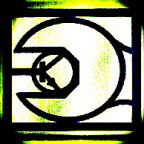Allowable AC Ripple Current at the Alternator Battery Post
- SailorBob
-
 Topic Author
Topic Author
- Offline
- Elite Member
-

The second statement seems to indicate to me that we're talking about 10% of the currently measured output of the alternator. For example it one measures 30 amps DC current, then the AC current should be less than 3 amps.
This second statement makes allot more sense to me since unlike testing for AC voltage, where the voltage output is relatively fixed between 13.5-15 volts and we say anything above 500mv AC average is bad, the current output is hugely variable and I would think 10% of the current amperage output would make allot more sense.h
Please Log in or Create an account to join the conversation.
- Dylan
-

- Offline
- Moderator
-

- Belgium, Europe
- Posts: 1461
- Thank you received: 327
Please Log in or Create an account to join the conversation.
- SailorBob
-
 Topic Author
Topic Author
- Offline
- Elite Member
-

Please Log in or Create an account to join the conversation.
- MattH
-
- Offline
- New Member
-

- Posts: 3
- Thank you received: 0
Anyway, I was always told 50MV max on AC @ the alternator. Never found that in a service manual of course. I had one today the measure 98MV, about double what I normally see. Not sure how much is too much..... grey areas....
Please Log in or Create an account to join the conversation.
- SailorBob
-
 Topic Author
Topic Author
- Offline
- Elite Member
-

Please Log in or Create an account to join the conversation.
- Dylan
-

- Offline
- Moderator
-

- Belgium, Europe
- Posts: 1461
- Thank you received: 327
SailorBob wrote: I've had trouble measuring alternator AC voltage with my multimeters. Apparently, they don't do AC coupling and expect pure AC. They measure wall mains AC just fine, but if I put them on any alternator they just freak out, with the reading jumping all over the place. Suppose I could just put a cap in line like I do for my scope, but my clamp seems to handle the AC current without any issue.
My multimeter also freaks out when measuring AC in autorange mode. So I just put in on manual range and it works fine. :huh:
Please Log in or Create an account to join the conversation.
- JeffBirt
-
- Offline
- Premium Member
-

- Posts: 129
- Thank you received: 34
Please Log in or Create an account to join the conversation.
- SailorBob
-
 Topic Author
Topic Author
- Offline
- Elite Member
-

Please Log in or Create an account to join the conversation.
- SailorBob
-
 Topic Author
Topic Author
- Offline
- Elite Member
-

Please Log in or Create an account to join the conversation.
- SailorBob
-
 Topic Author
Topic Author
- Offline
- Elite Member
-

members.iatn.net/forums/search/search.as...rum12&ft=1&fv=4&qv=1
Please Log in or Create an account to join the conversation.
- SailorBob
-
 Topic Author
Topic Author
- Offline
- Elite Member
-

Basically, it contradicts conventional wisdom and gives hard data to back itself up.
Please Log in or Create an account to join the conversation.
- Dylan
-

- Offline
- Moderator
-

- Belgium, Europe
- Posts: 1461
- Thank you received: 327
Please Log in or Create an account to join the conversation.
- tech111
-
- Offline
- New Member
-

- Posts: 1
- Thank you received: 0
This document seems to be a bit outdated. AC Ripple is something to keep in mind considering the modern vehicles with all the computers installed. AC is not being used in cars or trucks, so all that energie dissipates itself in heat. In the example of scannerdanner it will dissipate 3 Amps of heat somewhere. on the other hand all ecu have filters built in but never the less computers dont like ripple cause it messes up there internal clock timebase. Also its degrading there components and reduces the lifespan. Modern cars have quite a different way to charge the battery then 10 years back. so AC ripple becomes a very interesting topic not to forget.
Please Log in or Create an account to join the conversation.

